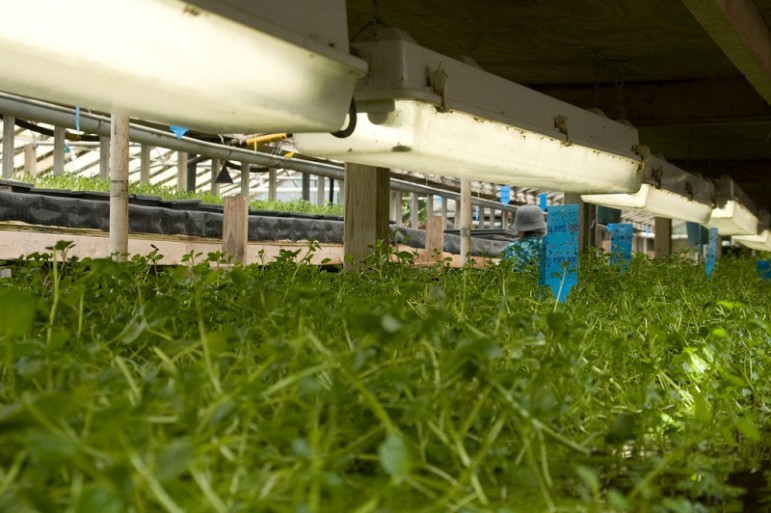
February 9, 2016; San Diego Union Tribune
A nonprofit-run farm working with homeless families has found success as a produce seller—and it’s growing. Solutions Farms, of Vista, California, is tripling in size, thanks to a well placed $1 million grant.
Solutions Farms is an all-organic farm using energy-savvy “aquaponics” methods to ensure healthy yields of both fish and fresh produce. But these points aren’t the only characteristics that stand out about Solutions; it also provides job training for homeless or formerly homeless individuals.
The farm is owned and operated by Solutions for Change, a nonprofit provider of services for homeless families. Solutions for Change does provide housing but focuses on job and financial training, counseling, and work experience intended to give clients the tools to overcome the trauma and hardship of homelessness. Before the expansion, between 30 and 50 people learned job skills in at the farm each month, as part of Solutions for Change’s job training program.
Sign up for our free newsletters
Subscribe to NPQ's newsletters to have our top stories delivered directly to your inbox.
By signing up, you agree to our privacy policy and terms of use, and to receive messages from NPQ and our partners.
Aquaponics combines aquaculture (fish production) and hydroponics (the process of growing plants without soil). Farmers at Solutions Farms raise tilapia in fresh water, and then transfer nutrient-rich water from the fish tanks to hydroponically grown crops. The growing process purifies the water, which is eventually returned to the fish tanks. It’s a water-conscious farming method that’s been used by other service-oriented farms, but rarely on a large scale.
The produce grown at Solutions Farms includes seasonal leafy greens and herbs, including basil, chives, and cilantro. These vegetables, as well as the fish, are sold to local restaurants and markets. Solutions also sells to two local school districts, creating an opportunity to add fresh produce to school lunches. The revenue from the food sales cycles back into Solutions Farms’ operations, but the farm still relies on grants to cover operating costs.
But one large grant is helping the environmentally friendly farm become sustainable in every sense of the word. Since Solutions Farms launched in 2012, it’s been housed in a 7,000-square-foot facility. With an innovation grant from the Alliance Healthcare Foundation, a foundation promoting public health initiatives near San Diego, Solutions Farms is currently expanding to fill 21,000 square feet.
The farm’s production director estimates that an expanded operation, along with logistical improvements, could quadruple food output. With more product and new customers, the farm’s operators hope it will become financially self-sufficient and eventually provide extra revenue for other Solutions for Change’s programs. If the Alliance grant does help the farm achieve profitability, Solutions Farms may be the next example of an earned-income venture turned profitable with hefty seed funding—pun very much intended.—Lauren Karch













